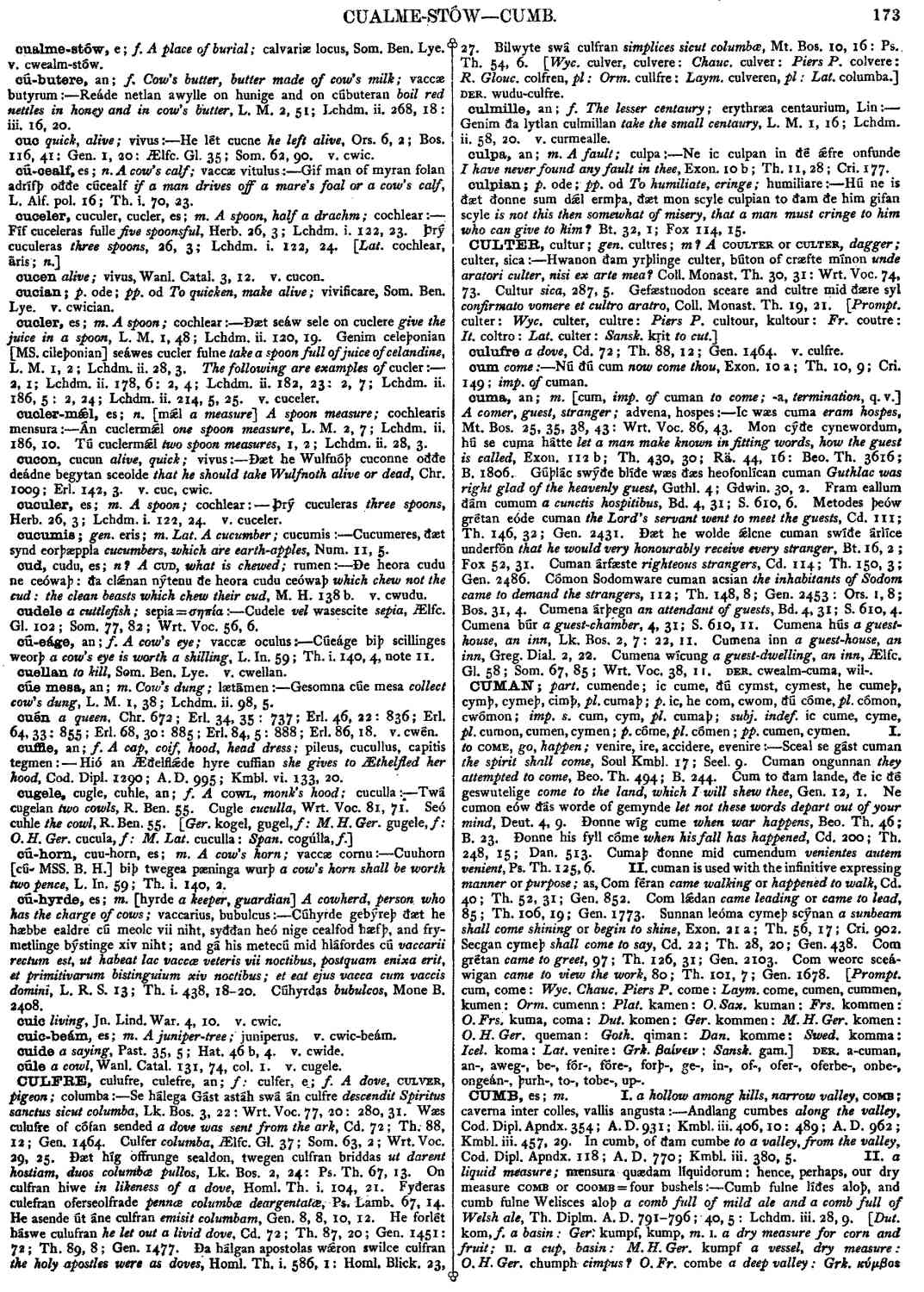cuma
- noun [ masculine ]
-
Ic wæs cuma
eram hospes,
- Mt. Bos. 25, 35, 38, 43: Wrt. Voc. 86, 43 .
-
Mon cýðe cynewordum, hú se cuma hátte
let a man make known in fitting words, how the guest is called,
- Exon. 112b ;
- Th. 430, 30; Rä. 44, 16: Beo. Th. 3616 ;
- B. 1806 .
-
Gúþlác swýðe blíðe wæs ðæs heofonlícan cuman
Guthlac was right glad of the heavenly guest,
- Guthl. 4 ;
- Gdwin. 30, 2 .
-
Fram eallum ðám cumum
a cunctis hospitibus,
- Bd. 4, 31 ;
- S. 610, 6 .
-
Metodes þeów grétan eóde cuman
the Lord's servant went to meet the guests,
- Cd. 111 ;
- Th. 146, 32 ;
- Gen. 2431 .
-
Ðæt he wolde ǽlcne cuman swíde árlíce underfón
that he would very honourably receive every stranger,
- Bt. 16, 2 ;
- Fox 52, 31 .
-
Cuman árfæste
righteous strangers,
- Cd. 114 ;
- Th. 150, 3 ;
- Gen. 2486 .
-
Cómon Sodomware cuman acsian
the inhabitants of Sodom came to demand the strangers,
- 112 ;
- Th. 148, 8 ;
- Gen. 2453: Ors. l, 8 ;
- Bos. 31, 4 .
-
Cumena árþegn
an attendant of guests,
- Bd. 4, 31 ;
- S. 610, 4 .
-
Cumena búr
a guest-chamber,
- 4, 31 ;
- S. 610, 11 .
-
Cumena inn
a guesthouse, an inn,
- Lk. Bos. 2, 7: 22, 11 .
-
Cumena inn
a guest-house, an inn,
- Greg. Dial. 2, 22 .
-
Cumena wícung
a guest-dwelling, an inn,
- Ælfc. Gl. 58 ;
- Som. 67, 85 ;
- Wrt. Voc. 38, 11 .
Bosworth, Joseph. “cuma.” In An Anglo-Saxon Dictionary Online, edited by Thomas Northcote Toller, Christ Sean, and Ondřej Tichy. Prague: Faculty of Arts, Charles University, 2014. https://bosworthtoller.com/6805.
Checked: 1